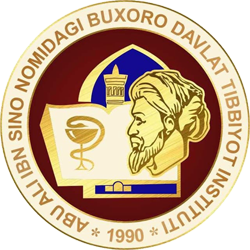Department scientific research
24.01.2022 2022-03-25 13:19Department scientific research
Currently, the department has 10 employees. 2 candidates of medical sciences, including 2 Ph.D., associate professors, 8 assistants do not have academic degrees.
The scientific potential of the department is 20%.
All employees of the department are engaged in research work. At the Department of Histology, Cytology and Embryology for the last 5 years published 133 scientific papers (92 journal articles and 41 scientific theses). Of the 92 magazine articles published, 64 were published in foreign editions (5 in Scopus), 28 in national editions. Out of 41 published theses, 29 were published in foreign editions and 12 in republican editions.
The staff of the department published 3 textbooks and 1 monograph. In 2020, the number of results of scientific research implemented by the staff of the department is 6. Assistant of the department BS Shokirov in the framework of cooperation in the secondary school No 50 in Shafirkan district of Bukhara region conducted master classes in Biology, Biology (Human Health)..

The main scientific directions of the department:
1 .”Functional morphology of the mammary glands and their relationship to postnatal development in chronic hepatitis” (BB Khasanov)
2.”Influence of maternal toxic hepatitis on the structural and functional formation of the thymus of the generation during the first postnatal ontogeny” (Azimova S.B.)
3.“Morphological changes in postnatal ontogenesis in the case of dysbacteriosis of the small intestinal immune system (experimental). (B.S.Shokirov)
4.Prospective value of cytokines in IPV-related cervical diseases in women of childbearing age. ”(GR Akhmatova) Currently, the assistant of the department Sh.R.Davronova is conducting research for the degree of PhD on “Morphofunctional changes in the thymus under the influence of adverse environmental factors.” Assistant of the department BS Shokrov approved the topic “Morphological changes in the postnatal ontogenesis of the small intestinal immune system in the case of dysbacteriosis (experimental)” and research work is underway.





